Nathalie Aussenac-Gilles
IRIT, University Paul Sabatier, Toulouse, France
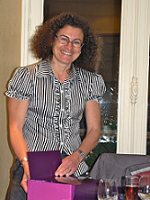 Nathalie Aussenac-Gilles is a CNRS senior researcher at IRIT, the laboratory in Computer Science of Université Paul Sabatier in Toulouse, since 1991. She heads the MELODI group jointly with P. Muller and from 2010 to 2019, she coordinated activities at IRIT related to Big Data, AI and Data processing. Her research deals with knowledge engineering (KE) and semantic web technologies, methods and models for ontology engineering and population from text and more recently from data. She contributed to information extraction from text and ontology-based integration of heterogeneous geospatial data.
Nathalie Aussenac-Gilles is a CNRS senior researcher at IRIT, the laboratory in Computer Science of Université Paul Sabatier in Toulouse, since 1991. She heads the MELODI group jointly with P. Muller and from 2010 to 2019, she coordinated activities at IRIT related to Big Data, AI and Data processing. Her research deals with knowledge engineering (KE) and semantic web technologies, methods and models for ontology engineering and population from text and more recently from data. She contributed to information extraction from text and ontology-based integration of heterogeneous geospatial data.
Katharina Kinder-Kurlanda
GESIS Leibniz Institute for the Social Sciences, Cologne, Germany
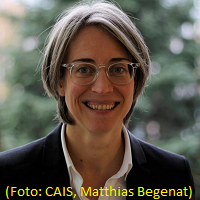 Katharina Kinder-Kurlanda is a Senior Researcher and Team Leader for 'Data Linking & Data Security' at the GESIS - Leibniz-Institute for the Social Sciences in Cologne, Germany. Her research interests are emerging epistemological concepts of social media and big data; internet research ethics; privacy, data protection & security; algorithms, casual games and the internet of things. She works at the intersection of sociology of technology, cultural anthropology and computer science.
Katharina Kinder-Kurlanda is a Senior Researcher and Team Leader for 'Data Linking & Data Security' at the GESIS - Leibniz-Institute for the Social Sciences in Cologne, Germany. Her research interests are emerging epistemological concepts of social media and big data; internet research ethics; privacy, data protection & security; algorithms, casual games and the internet of things. She works at the intersection of sociology of technology, cultural anthropology and computer science.
Ralf Klamma
RWTH Aachen University, Aachen, Germany
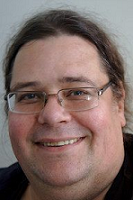 Ralf Klamma holds diploma, doctoral and habilitation degrees in computer science from RWTH Aachen University. He leads the research group “advanced community information systems” (ACIS) at the information systems chair, RWTH Aachen University. He is known for his work in major EU projects for Technology Enhanced Learning (PROLEARN, GALA, ROLE, Learning Layers, TELMAP, Tellnet, CUELC, SAGE, BOOST, VIRTUS, WEKIT and tech4comp). Ralf organized doctoral summer schools & conferences in Technology Enhanced Learning, Web Engineering and Social Network Analysis. He serves as associate editor for Social Network Analysis and Mining (SNAM), Frontiers of AI for Human Learning and Behavior Change and the International Journal on Interaction Design & Architecture(s) (IxD&A). He was associate editor for IEEE Transactions on Learning Technologies (ToLT). His research interests are community information systems, serious games, augmented reality & wearables, web science, requirements engineering and technology enhanced learning.
Ralf Klamma holds diploma, doctoral and habilitation degrees in computer science from RWTH Aachen University. He leads the research group “advanced community information systems” (ACIS) at the information systems chair, RWTH Aachen University. He is known for his work in major EU projects for Technology Enhanced Learning (PROLEARN, GALA, ROLE, Learning Layers, TELMAP, Tellnet, CUELC, SAGE, BOOST, VIRTUS, WEKIT and tech4comp). Ralf organized doctoral summer schools & conferences in Technology Enhanced Learning, Web Engineering and Social Network Analysis. He serves as associate editor for Social Network Analysis and Mining (SNAM), Frontiers of AI for Human Learning and Behavior Change and the International Journal on Interaction Design & Architecture(s) (IxD&A). He was associate editor for IEEE Transactions on Learning Technologies (ToLT). His research interests are community information systems, serious games, augmented reality & wearables, web science, requirements engineering and technology enhanced learning.
Ivana Marenzi
L3S Research Center, Leibniz University of Hanover, Germany
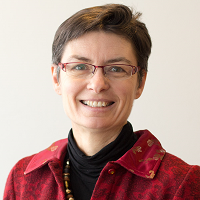 Ivana Marenzi, PhD (F), is senior researcher at the L3S Research Center of the Leibniz University of Hannover, Germany. Her main area of research in Technology Enhanced Learning (TEL) includes the support of collaborative and lifelong learning. As educational technologist her main interest is dealing with issues related to the adoption of new technologies in education. She is currently coordinator of the LearnWeb project and project manager of the Innovative Training Network CLEOPATRA (Cross-lingual Event-centric Open Analytics Research Academy).
Ivana Marenzi, PhD (F), is senior researcher at the L3S Research Center of the Leibniz University of Hannover, Germany. Her main area of research in Technology Enhanced Learning (TEL) includes the support of collaborative and lifelong learning. As educational technologist her main interest is dealing with issues related to the adoption of new technologies in education. She is currently coordinator of the LearnWeb project and project manager of the Innovative Training Network CLEOPATRA (Cross-lingual Event-centric Open Analytics Research Academy).
Wolfgang Nejdl
L3S Research Center, Leibniz University of Hanover, Germany
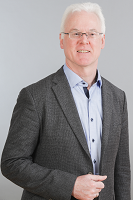 Prof. Dr. Wolfgang Nejdl (born 1960) has been full professor of computer science at the University of Hannover since 1995. He hads the L3S Research Center, www.L3S.de, and does research in the areas of search and information retrieval, Social Web and Social Media as well as Data Mining and Artificial Intelligence. He has headed the ALEXANDRIA project, financed through an ERC Advanced Grant, on temporal information retrieval and web archives. Other projects include the Applied Machine Learning Academy, CampaNeo, HAISEM-Lab and IIP-Ecosphere.
Prof. Dr. Wolfgang Nejdl (born 1960) has been full professor of computer science at the University of Hannover since 1995. He hads the L3S Research Center, www.L3S.de, and does research in the areas of search and information retrieval, Social Web and Social Media as well as Data Mining and Artificial Intelligence. He has headed the ALEXANDRIA project, financed through an ERC Advanced Grant, on temporal information retrieval and web archives. Other projects include the Applied Machine Learning Academy, CampaNeo, HAISEM-Lab and IIP-Ecosphere.
Steffen Staab
Web Science and Technologies (WeST), University of Koblenz-Landau, Koblenz, Germany
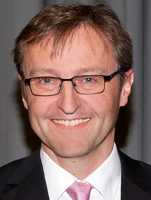 Steffen is full professor for Analytic Computing, Germany, and full professor for Web and Computer Science at University of Southampton, UK. He studied in Erlangen (Germany), Philadelphia (USA) and Freiburg (Germany) computer science and computational linguistics. In his research career he has managed to avoid almost all good advice that he now gives to his team members. Such advice includes focusing on research (vs. company) or concentrating on only one or two research areas (vs. considering ontologies, semantic web, social web, data engineering, text mining, peer-to-peer, multimedia, HCI, services, software modelling and programming and some more). Though, actually, improving how we understand and use text and data is a good common denominator for a lot of Steffen’s professional activities.
Steffen is full professor for Analytic Computing, Germany, and full professor for Web and Computer Science at University of Southampton, UK. He studied in Erlangen (Germany), Philadelphia (USA) and Freiburg (Germany) computer science and computational linguistics. In his research career he has managed to avoid almost all good advice that he now gives to his team members. Such advice includes focusing on research (vs. company) or concentrating on only one or two research areas (vs. considering ontologies, semantic web, social web, data engineering, text mining, peer-to-peer, multimedia, HCI, services, software modelling and programming and some more). Though, actually, improving how we understand and use text and data is a good common denominator for a lot of Steffen’s professional activities.
Sophie Stalla-Bourdillon
University of Southampton, Southampton, Great Britain
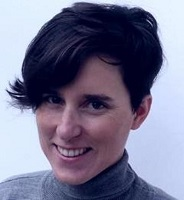 Professor Sophie Stalla-Bourdillon is a Professor in Information Technology Law and Data Governance within Southampton Law School at the University of Southampton and Senior Privacy Counsel and Legal Engineer at Immuta. She is a (non-ex) Director of the Web Science Institute and a member of the Southampton Cybersecurity Centre of Excellence. Sophie has acted as an expert for the Organisation for the Cooperation and Security in Europe (in the field of intermediary liability) and for the Organisation for Economic Development and Cooperation (in the field of data protection, research data and anonymisation). She was part of the expert group formed by the Council of Europe on intermediary liability MSI-NET (2016-2018). She is member of the expert group to the EU Observatory on the Online Platform Economy formed by the European Commission in 2018. She is Editor-in-Chief of the Computer Law and Security Review, a leading international journal of technology law and practice.
Professor Sophie Stalla-Bourdillon is a Professor in Information Technology Law and Data Governance within Southampton Law School at the University of Southampton and Senior Privacy Counsel and Legal Engineer at Immuta. She is a (non-ex) Director of the Web Science Institute and a member of the Southampton Cybersecurity Centre of Excellence. Sophie has acted as an expert for the Organisation for the Cooperation and Security in Europe (in the field of intermediary liability) and for the Organisation for Economic Development and Cooperation (in the field of data protection, research data and anonymisation). She was part of the expert group formed by the Council of Europe on intermediary liability MSI-NET (2016-2018). She is member of the expert group to the EU Observatory on the Online Platform Economy formed by the European Commission in 2018. She is Editor-in-Chief of the Computer Law and Security Review, a leading international journal of technology law and practice.
Gerhard Weikum
Max Planck Institute for Informatics, Saarbrücken, Germany
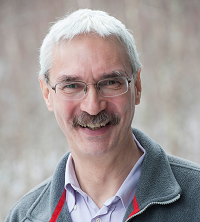 Gerhard Weikum is a Scientific Director at the Max Planck Institute for Informatics in Saarbruecken, Germany. He co-authored a comprehensive textbook on transactional systems, received the VLDB Test of Time Award for his work on automatic database tuning, and is one of the creators of the YAGO knowledge base which received the WWW Test of Time Award. He has served on the editorial boards of ACM TODS, IEEE TKDE and ACM TWEB, and was PC chair of ACM SIGMOD and IEEE ICDE. He is an ACM Fellow and received the ACM SIGMOD Edgar F. Codd Innovations Award.
Gerhard Weikum is a Scientific Director at the Max Planck Institute for Informatics in Saarbruecken, Germany. He co-authored a comprehensive textbook on transactional systems, received the VLDB Test of Time Award for his work on automatic database tuning, and is one of the creators of the YAGO knowledge base which received the WWW Test of Time Award. He has served on the editorial boards of ACM TODS, IEEE TKDE and ACM TWEB, and was PC chair of ACM SIGMOD and IEEE ICDE. He is an ACM Fellow and received the ACM SIGMOD Edgar F. Codd Innovations Award.
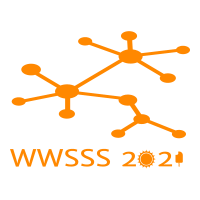 WSTNET Web Science Summer School 2021
WSTNET Web Science Summer School 2021 
 WSTNET Web Science Summer School 2021
WSTNET Web Science Summer School 2021 
